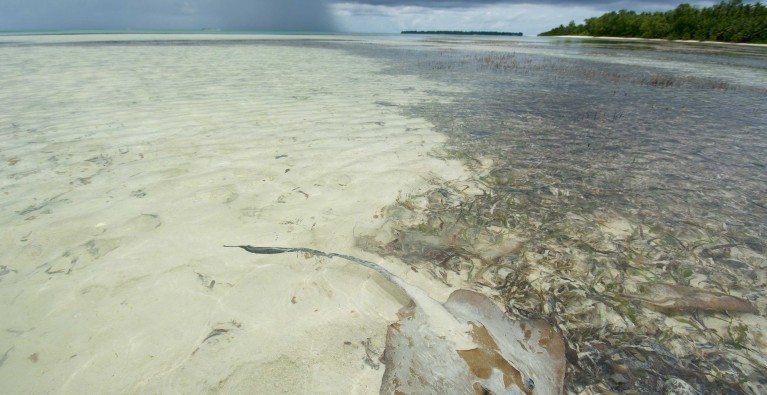Sonja Fordham
I am an advocate. Not a scientist, a lawyer or a lobbyist – just a proud advocate for some of the oceans’ most vulnerable species. I take what scientists say about much needed limits on shark and ray fishing and try to get it reflected in policy.
Advocacy in an often hostile environment was not a likely path for me. I was painfully shy as a child and my parents imagined I would live a quiet life, perhaps as a kindergarten teacher. It was thanks to those parents that I came to love nature at an early age, and by high school I was a fully-fledged marine mammal hugger with a rather common dream to “save the whales.” While at the University of Maryland, I was fortunate enough to take a class by the shark lady herself, Dr Eugenie Clark. It’s hard to believe now, but during that class I stayed focused on my dolphin project and had much less interest in sharks.
After university, I did what most young people are told to do: find an organisation you like and take whatever job you can, just to get your foot in the door. That organisation was the Center for Marine Conservation (CMC) in Washington, DC. The job was in a new fisheries programme led by a brilliant and delightful man called Harry Upton.
In 1991, the year I joined CMC, Harry made the visionary decision to get involved in the first ‘Sharks Down Under’ international conference in Sydney and brought back both important information and a keen interest in addressing the plight of the under-appreciated species. At the time, shark fishing was expanding in the south-eastern USA and finning (slicing off the fin and discarding the body at sea) was legal.
I knew from school that sharks and dolphins had similar reproductive strategies: slow growth and few young. Yet dolphins and all other marine mammals were strictly protected in the USA, regardless of population status. Although sharks were similarly vulnerable to overexploitation, shark fishing was a veritable free-for-all back then. It soon seemed clear that sharks were in much greater need of an advocate, and I made what I think was a wise decision to “stick it out” in the world of fish.
My first duties at CMC included pestering National Marine Fisheries Service (NMFS) officials about finalising a long-languishing draft Atlantic shark fishery management plan, which included a ban on finning. I was also tasked with assisting in the development of the newly established IUCN Shark Specialist Group (SSG), whose founding members, Sarah Fowler, Sonny Gruber, and George Burgess, evolved into enduring colleagues.
The first US shark fishery management plan was finalised in 1993, about the time that a US fishery for spiny dogfish sharks was starting to develop further north. There was plenty of work to be done to tighten the shark plan and try to apply its hard lessons (about how easily sharks are overfished) to dogfish and then to skates, as well as all the closely related species that were being increasingly fished around the world. The opportunities to help sharks and rays continued to expand, as did my role in the SSG; I now serve as deputy chair. In 2010, I founded my own shark and ray initiative, Shark Advocates International, as a project of The Ocean Foundation.
